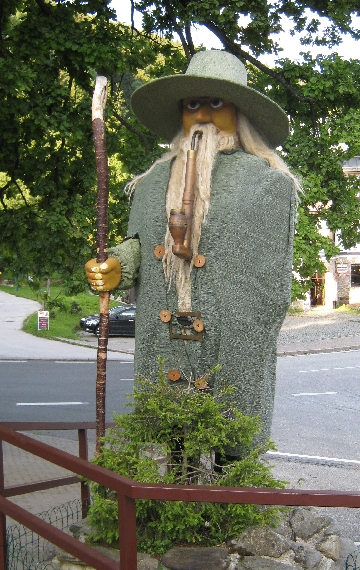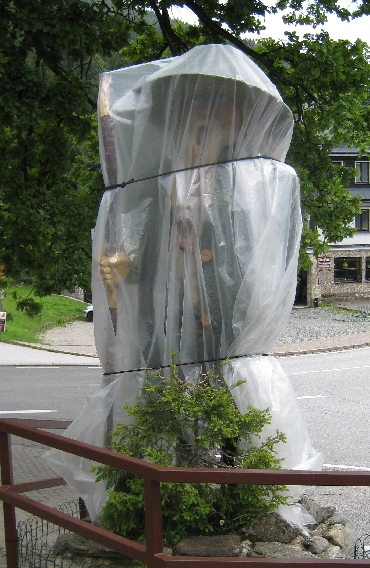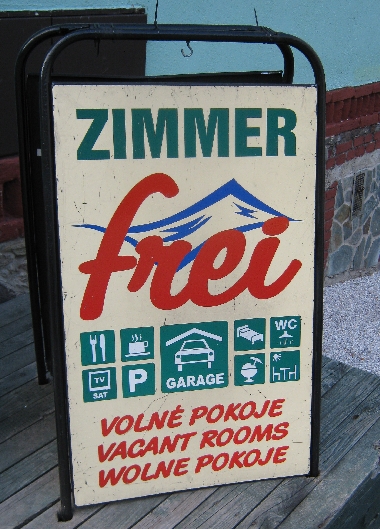
Right across the Krkonoše Mountains, there are many carved wooden statues all depicting a friendly giant known as Rübezahl (German) or Krakonoš (Czech), who according to legend, inhabits the area. As the origin of the legend is Germanic, I hope my Czech readers will forgive me calling him Rübezahl throughout this post.
Whilst there are numerous fairy tales about Rübezahl, the most well known is the one that also explains the origin of his name. One day, Rübezahl abducted a Polish princess with the intention of marrying her. She complained that she was lonely without her court being with her so Rübezahl promised to recreate the members of her court from the turnips (German Rübe) that he was growing. Whilst he was out counting (German zählen) the turnips, the princess escaped!
Whilst Rübezahl is the name by which the giant is commonly known, he personally deems it to be insulting as it means ‘turnip counter! He much prefers to be known instead as ‘Lord of the Mountains’.
By far the most impressive Rübezahl we saw during our time in the Krkonoše Mountains was this one in the centre of Pec outside Hospoda na Peci where Sybille and I ate most evenings we were there. Whilst sitting on an outside table at the Hospada, I saw many other people also photographing him or being photographed with him. However, he doesn’t apparently cope very well with wet weather so, whenever it is likely to rain, he gets coved in thick plastic sheeting. Quite how he copes with the snow in winter, I’m not at all sure!

In my previous post, I mentioned the two unfortunate remaining Communist era monstrosities in Pec. Here is the second of them, the towering totally out-of-place Hotel Horizont, as seen from the steps of Penzion Nikola.

And in her comment on my previous post, Lis asked if many foreigners visit the Krkonoše Mountains. Here is a sign from outside a hotel in Pec which provides confirmation of the answer I gave. Germans – hence the large print ‘Zimmer frei’. The other languages are Czech, English, (presumably for the Dutch and Flemish-speaking Belgians), and Polish.

